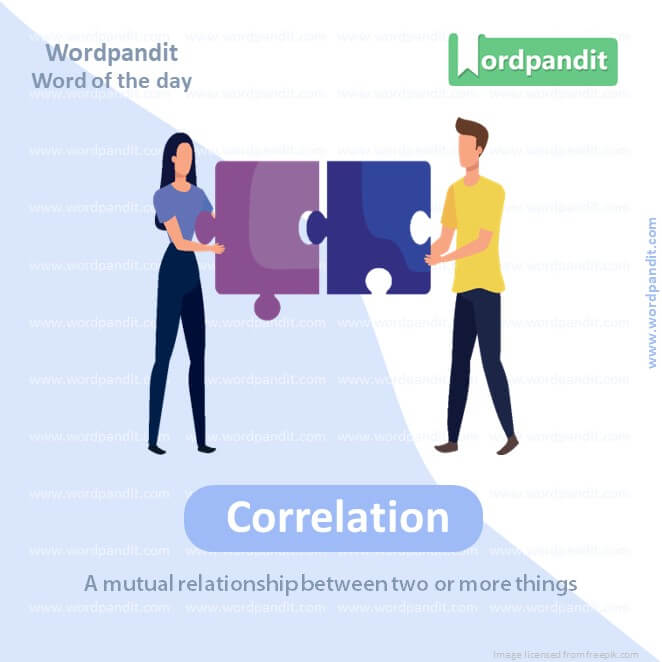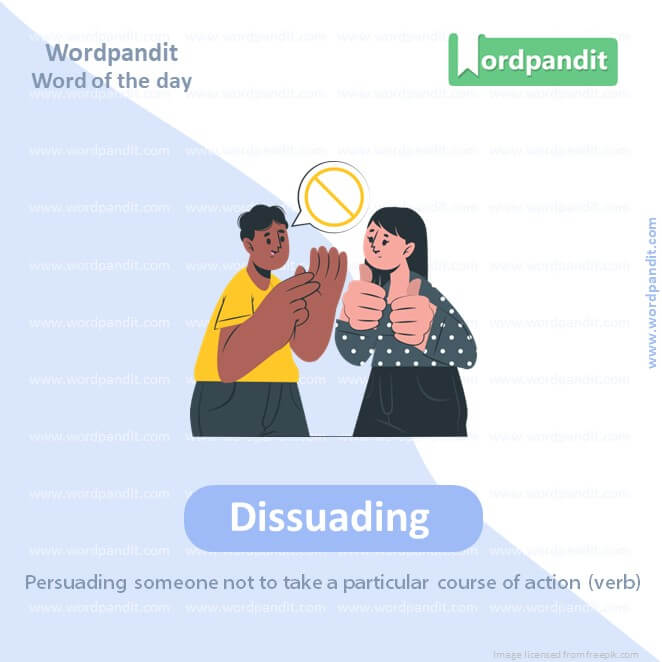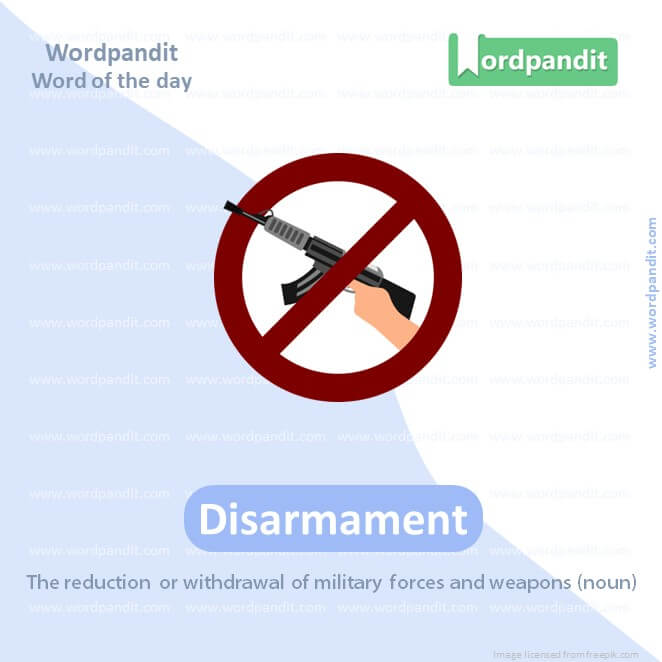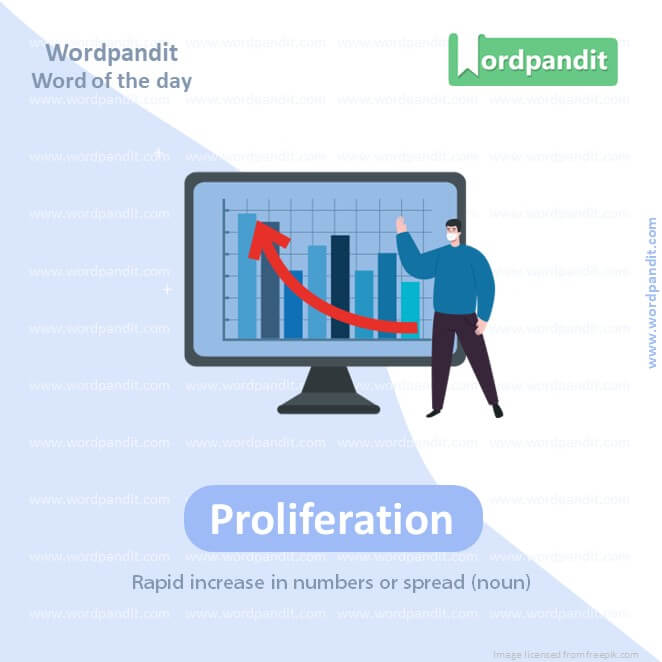Daily Vocabulary Words: Enhance Your Lexicon with Leading Newspapers & Publications
Welcome to the Daily Vocabulary section at Wordpandit!
Our mission is straightforward: to bring you essential vocabulary words featured in top newspapers and publications worldwide. By focusing on words you’ll encounter in renowned sources, we aim to help you enhance your vocabulary effectively and practically.
Our selection includes words from:
– The New York Times
– The Washington Post
– Scientific American
– BBC
– The Guardian
– Psychology Today
– Wall Street Journal
– The Economist
– The Hindu
– The Times of India
– The Economic Times
– Hindustan Times
– Live Mint
– The Indian Express
– And many more.
We are committed to your vocabulary development. Simply visit this section regularly and explore the daily posts. This is your go-to repository for commonly used words, providing significant practical benefits by familiarizing you with vocabulary from the leading publications listed above.
Make it a habit to visit our website daily and expand your lexicon with words from top newspapers and publications. (edited)
WORD-1: RETRIEVAL
CONTEXT: The State BJP, like other parties in Tamil Nadu, has been talking about the island’s retrieval. The situation gets complicated when its national leadership too lends its voice.
SOURCE: The Hindu
EXPLANATORY PARAGRAPH: Imagine you left your favorite toy in another room, and you go back to get it. Bringing something back that you left somewhere is called “retrieval.” It’s like when you fetch something you need or lost.
MEANING: The process of getting something back from somewhere (noun).
PRONUNCIATION: ree-TREE-vul
SYNONYMS: Recovery, reclamation, recapture, regain, repossession, fetching
USAGE EXAMPLES:
1. The retrieval of the lost documents took several hours.
2. The dog was trained for the retrieval of toys.
3. Successful data retrieval is crucial for the project.
4. The retrieval of the stolen goods made everyone happy.

WORD-2: DEMARCATE
CONTEXT: These include the reference by an Indian survey team in 1874-76 to Kathatheevu being a part of Sri Lanka, Sri Lanka’s assertion of sovereignty since 1921 when talks began to demarcate the fishery line in the Palk Bay, and the inability of the Madras Presidency to establish the islet’s original title.
SOURCE: The Hindu
EXPLANATORY PARAGRAPH: Imagine drawing a line with chalk on the ground to show where your play area ends and where your friend’s play area begins. “Demarcate” means to set a boundary or mark where something starts and ends.
MEANING: To set the boundaries or limits of something (verb)
PRONUNCIATION: dee-MAHR-kayt
SYNONYMS: Define, delimit, mark, separate, distinguish, outline, partition
USAGE EXAMPLES:
1. The fence helps to demarcate the property line.
2. The river demarcates the boundary between the two countries.
3. We need to demarcate the areas for different activities.
4. The sign demarcates the beginning of the national park.
WORD-3: MERELY
CONTEXT: This means that domestic manufacturers should be subject to stringent quality checks and not be allowed to compromise on cost and quality merely on nationalistic grounds.
SOURCE: The Hindu
EXPLANATORY PARAGRAPH: Imagine you have one small cookie and you say, “I have merely one cookie.” “Merely” means only having a little bit or just one thing, not more.
MEANING: Only and nothing more (adverb).
PRONUNCIATION: MEER-lee
SYNONYMS: Only, just, simply, purely, solely, barely, hardly
USAGE EXAMPLES:
1. She was merely a child when she started playing the piano.
2. It’s merely a scratch, nothing serious.
3. He was merely trying to help.
4. This is merely the beginning of the project.

WORD-4: CORRELATION
CONTEXT: A paper in the Asian Journal of Political Science, in 2015, titled “India 2014: Facebook ‘Like’ as a Predictor of Election Outcomes” showed a high positive correlation between the number of ‘likes’ a party or its leader secured on their official Facebook fan page and their popular vote share.
SOURCE: The Hindu
EXPLANATORY PARAGRAPH: Imagine you see that every time you water your plant, it grows taller. The connection between watering the plant and it growing taller is called a “correlation.” It means that two things are related to each other.
MEANING: A mutual relationshipbetween two or more things
PRONUNCIATION: kohr-uh-LAY-shun
SYNONYMS: Connection, relationship, association, link, parallel, interaction
USAGE EXAMPLES:
1. There is a strong correlation between exercise and good health.
2. The study found a correlation between sleep and productivity.
3. We are examining the correlation between diet and weight loss.
4. The data shows a correlation between education and income.

WORD-5: DISSUADING
CONTEXT: It was a robocall made by AI aimed at dissuading Democratic voters not to turn up to polling stations on election day.
SOURCE: The Hindu
EXPLANATORY PARAGRAPH: Imagine your friend wants to touch a hot stove, and you tell them it’s a bad idea so they won’t get hurt. When you try to stop someone from doing something, that’s called “dissuading.”
MEANING: Persuading someone not to take a particular course of action (verb)
PRONUNCIATION: dih-SWAY-ding
SYNONYMS: Discouraging, deterring, preventing, cautioning, advising against, persuading against
USAGE EXAMPLES:
1. She was successful in dissuading him from quitting his job.
2. The bad weather is dissuading us from going to the beach.
3. His parents are dissuading him from buying a motorcycle.
4. They tried dissuading her from making a hasty decision.
WORD-6: OUTLAWED
CONTEXT: The United States government has outlawed robocalls using AI-generated voices in its response to the Biden robocall incident.
SOURCE: The Hindu
EXPLANATORY PARAGRAPH: Imagine a game where certain moves are not allowed because they make the game unfair. When something is not allowed by the rules or by law, it is “outlawed.” It means it is forbidden or banned.
MEANING: Made illegal or banned by law (verb).
PRONUNCIATION: OUT-lawd
SYNONYMS: Banned, forbidden, prohibited, barred, illegalized, restricted
USAGE EXAMPLES:
1. Smoking in public places has been outlawed.
2. The use of certain chemicals has been outlawed to protect the environment.
3. In some countries, gambling is outlawed.
4. The government has outlawed texting while driving.

WORD-7: DISARMAMENT
CONTEXT: Prime Minister Jawaharlal Nehru made a speech in the Lok Sabha that would put India on the global stage of nuclear disarmament.
SOURCE: The Hindu
EXPLANATORY PARAGRAPH: Imagine you have a bunch of toys, but someone asks you to put them all away so there’s no mess. “Disarmament” is when countries agree to get rid of their weapons so everyone can be safer.
MEANING: The reduction or withdrawal of military forces and weapons (noun)
PRONUNCIATION: dis-ARM-uh-ment
SYNONYMS: Demilitarization, demobilization, dismantling, reduction, neutralization
USAGE EXAMPLES:
1. The treaty focused on nuclear disarmament.
2. Disarmament talks are scheduled to resume next month.
3. The country is committed to disarmament and peace.
4. Successful disarmament requires cooperation from all nations.
WORD-8: PRAGMATISM
CONTEXT: This speech was marked by pragmatism, vision, and self-assurance.
SOURCE: The Hindu
EXPLANATORY PARAGRAPH: Imagine you need to build a treehouse, but you only have a few pieces of wood. “Pragmatism” means figuring out the best way to use what you have to get the job done. It’s about being practical and finding solutions that work.
MEANING: A practical approach to problems and affairs (noun).
PRONUNCIATION: PRAG-muh-tiz-um
SYNONYMS: Practicality, realism, sensibleness, efficiency, functionality, rationality
USAGE EXAMPLES:
1. His pragmatism helped solve many of the company’s problems.
2. Pragmatism is essential when dealing with limited resources.
3. She approached the situation with pragmatism rather than emotion.
4. Pragmatism often leads to the most effective solutions.

WORD-9: PROLIFERATION
CONTEXT: He cemented India’s claim to leadership, gave impetus to calls that eventually yielded the Partial Test Ban Treaty (PTBT), and arguably limited horizontal nuclear proliferation by insisting on treating nuclear weapons as beyond the pale.
SOURCE: The Hindu
EXPLANATORY PARAGRAPH: Imagine you plant one flower seed, and soon you have many flowers growing everywhere. “Proliferation” means something is spreading and growing quickly in numbers.
MEANING: Rapid increase in numbers or spread (noun}
PRONUNCIATION: pro-lif-uh-RAY-shun
SYNONYMS: Spread, increase, multiplication, expansion, growth, surge
USAGE EXAMPLES:
1. The proliferation of smartphones has changed how we communicate.
2. We are seeing a rapid proliferation of new technologies.
3. Proliferation of social media has impacted many aspects of life.
4. The organization is working to prevent the proliferation of nuclear weapons.
WORD-10: STOCKPILING
CONTEXT: The United Nations Disarmament Commission is addressing both the immediate moratorium and the longer-term goal of prohibiting the production and stockpiling of nuclear weapons. It sought to build public pressure on nuclear states by calling for greater disclosure on the destructiveness and effects of these weapons.
SOURCE: The Hindu
EXPLANATORY PARAGRAPH: Imagine you collect a lot of toys and keep them in a big box so you can use them later. “Stockpiling” means collecting and saving a lot of something for future use.
MEANING: The act of accumulating a large supply of something for future use (verb).
PRONUNCIATION: STOK-py-ling
SYNONYMS: Accumulating, hoarding, storing, gathering, amassing, collecting
USAGE EXAMPLES:
1. People started stockpiling food and water before the storm.
2. The company is stockpiling supplies for the busy season.
3. Stockpiling of resources can help during emergencies.
4. They are stockpiling medicines in case of a shortage.
Vocabulary Importance
In the realm of language learning, understanding ‘vocabulary importance’ is a fundamental concept. Words are the building blocks of language and a rich vocabulary fuels effective and persuasive communication. However, embracing ‘vocabulary importance’ involves more than just acknowledging its role – it requires you to integrate it into your learning strategy.
To truly grasp ‘vocabulary importance’, expose yourself to a variety of reading and listening activities. Whether it’s reading novels, engaging with podcasts, or watching films in your the profound impact of having a robust vocabulary arsenal and will illuminate the practical ‘vocabulary importance.’
Additionally, recognizing ‘vocabulary importance’ necessitates an active approach to vocabulary acquisition. Regularly dedicate time to learning new words. Use flashcards, word lists, language apps, or even set a ‘word of the day’ to maintain a steady flow of vocabulary learning.
Incorporating the learnt vocabulary into your speech and writing is non-negotiable when understanding ‘vocabulary importance’. Regular usage not only enhances vocabulary retention, but it also uncovers the magic of eloquent expression that a blossoming vocabulary can yield.
It’s also beneficial to lean on memory aids in recognizing ‘vocabulary importance’. Associating words with images, stories or personal anecdotes creates strong memory hooks, enhancing vocabulary recall and solidifying the understanding of ‘vocabulary importance’.
To sum it up, ‘vocabulary importance’ is not just a theory to be noted, but a mantra to be embraced in your language learning journey. Engage with a wide variety of resources, actively learn and use new words, and utilize effective recall techniques. As you uncover the depths of ‘vocabulary importance’, you’ll realize that every new word is a fresh shade on your language palette, painting your communication canvas with hues of eloquence, clarity, and confidence.













